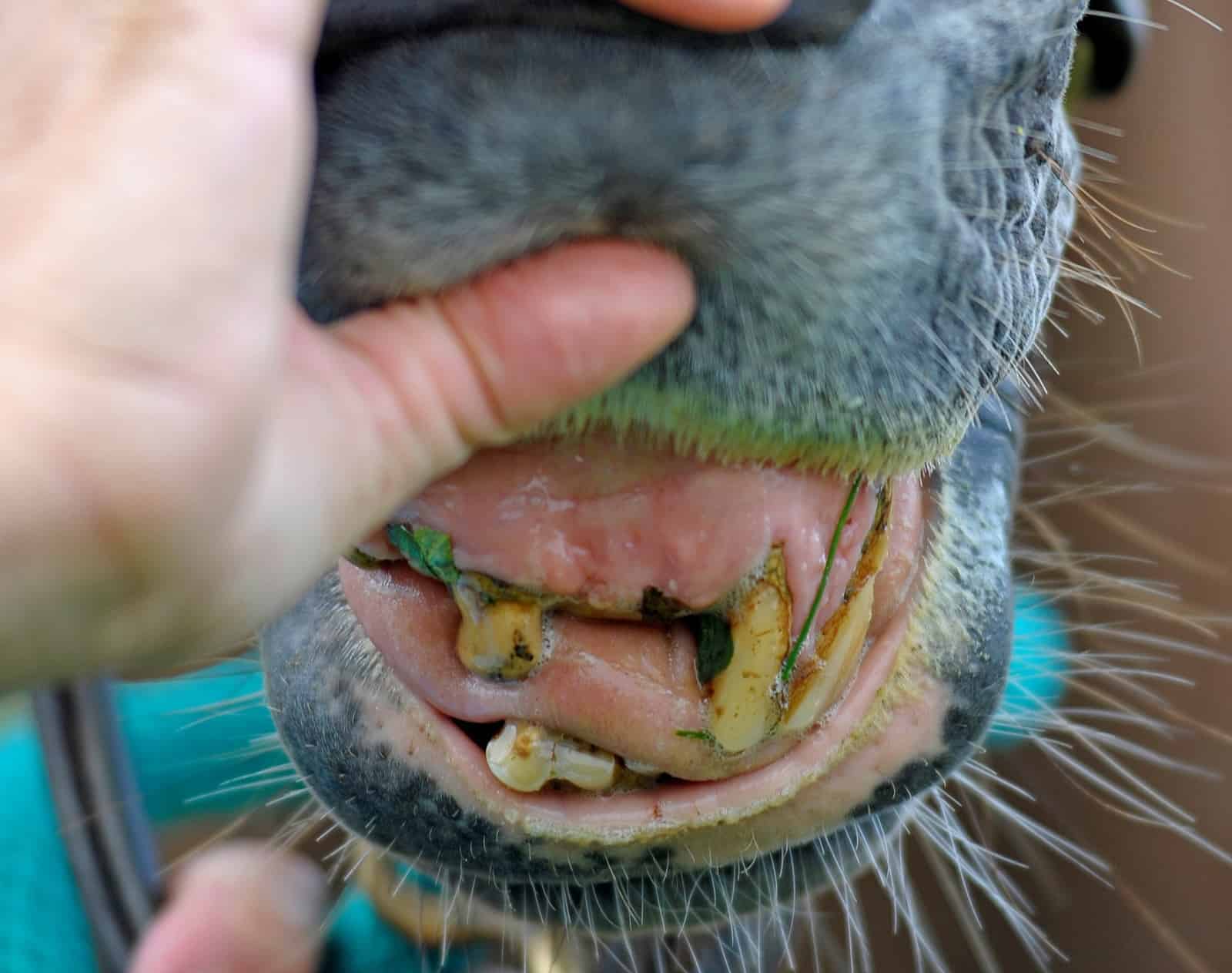How to Care for Aging Equids’ Teeth

At the 2014 British Equine Veterinary Association Congress, held Sept. 10-13 in Birmingham, U.K., Nicole du Toit, BVSc, MSc, Cert. EP, PhD, Dipl. EVDC (Equine), AVDC (Equine), of Tulbagh Equine Dentistry, in South Africa, reviewed what problems veterinarians should look out for and how to best manage those issues.
Common Problems
“Older equine patients inevitably have some degree of dental disease,” du Toit said. “This may be due to the natural aging process or due to the compounding of dental disease, which developed earlier in life.”
One factor that contributes to dental problems in older horses is the teeth themselves. Horses have hypsodont (long) teeth that slowly wear away during their lives. They have about four inches of tooth crown below the surface of the gums hidden in the jaw bones. As the grinding of their coarse meals wears away a little bit of tooth surface, more erupts into the mouth to take its place. And, as the horse ages, the crown that has erupted out of the jaw over his entire life begins to run out, leaving the horse with narrower, unstable teeth
Create a free account with TheHorse.com to view this content.
TheHorse.com is home to thousands of free articles about horse health care. In order to access some of our exclusive free content, you must be signed into TheHorse.com.
Start your free account today!
Already have an account?
and continue reading.

Written by:
Erica Larson
Related Articles
Stay on top of the most recent Horse Health news with











